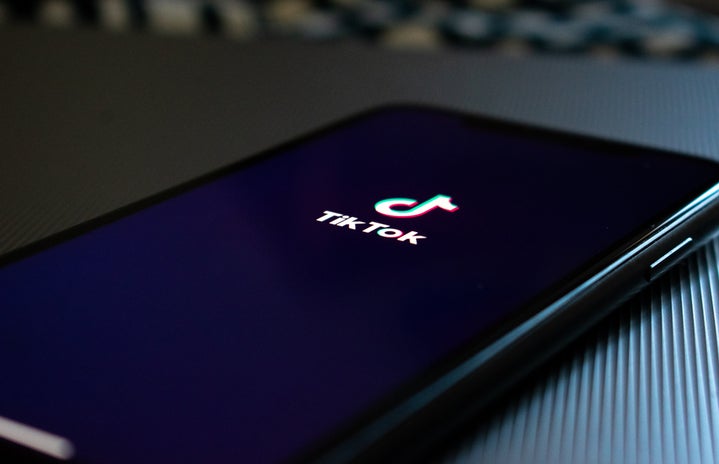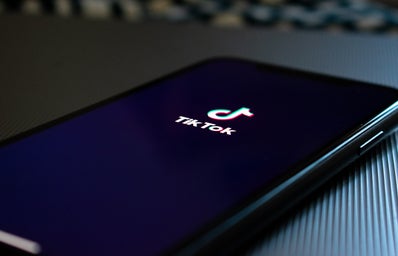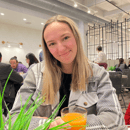TW: if you are sensitive to any of the following topics please do not continue reading: depression, anxiety, eating disorders, and self harm. Resources are linked at the bottom of this article!
Social media has a habit of contributing to eating disorder culture, oftentimes without users realizing the impact their comments could have on someone in recovery. As someone who has been in recovery for 6+ years, I have a pretty good handle on aspects of EDs and recovery that those not familiar with eating disorders may not realize are harmful behaviors. Normalization of certain habits and lifestyles are damaging to those in recovery as well as the younger generations joining social media.
- People recovering from EDs are often unable to participate in lifestyle changes like being vegan or vegetarian.
-
Being vegan/vegetarian is great for the environment and is becoming more popular with younger generations. This being said, there are many reasons why not everyone is able to make the switch. One that I’ve seen most commonly misunderstood is those recovering from EDs, specifically of the restrictive type. A major theme in recovery is working to eat without “rules,” either individual ones or societal. A few examples of this would be eating foods that are deemed “good” or “clean” and staying away from “processed” or “bad” foods. There is no way to stick to a strict diet without following these types of rules and this can be extremely harmful to someone in recovery. Even though I stay away from meat for environmental reasons, I have to make sure that I eat it if I want to. This might mean breaking the rules of being a vegetarian, but it’s the healthiest way for me to participate. It’s not impossible to be vegan/vegetarian in recovery, but often this choice stems from restrictive tendencies and a need for control. Participating in this instead of restricting caloric intake may seem less harmful, but it is still a way of coping using the same tendencies as restriction.
- Posting a before and after of recovery isn’t as helpful as you think
-
Often I see people in recovery posting photos of how far they’ve come in gaining and stabilizing their weight. This is absolutely something to celebrate, but a before and after probably isn’t the best way to do that. Although these posts usually have pure intentions, they can be harmful to others in recovery or anyone struggling with an eating disorder, in general. Photos which show dramatic weight restoration perpetuate the idea of a “sick” body. This makes it difficult for others who didn’t lose weight or never looked “skinny” to validate their own struggles. Anorexia and bulimia are dangerous illnesses and sometimes weight loss is a symptom, but focusing on this leads to standards of what it means to be sick and can actually encourage people to restrict more so they look “sick”. Eating disorders thrive on competition, and having a comparison like this may drive those struggling to lose more weight in order to find value in their sickness. Though these posts may be helpful in showing the stark contrast between bodies and help those who have never experienced an ED understand the severity of these illnesses, oftentimes they end up hurting those most vulnerable.
- Surviving on only iced coffee and skipping meals is not normal or healthy!
-
There are so many users who post about not eating for hours or using coffee to fill themselves up. Normalizing disordered eating is dangerous, especially since many users on social media are young and vulnerable. Continued discussion about these habits is harmful to those recovering as well as those who may suffer from an ED in the future. Anyone with a restrictive-type eating diagnosis may convince themselves that they can’t eat more than a “normal” person, or that this is healthy because “normal” people are doing it. Realistically, someone in recovery from an eating disorder can’t go a day without eating. It’s too easy to slip back into a cycle of restriction and incredibly difficult to break it without consequences. There is no good that comes from showcasing restrictive habits and it’s not quirky. It’s harmful to your body and possibly your followers’ also.
Eating disorders are dangerous mental illnesses that persist in one’s life even after choosing recovery. Every day is a new fight to take care of your body and provide it the nutrients it needs to function. So many aspects of our society makes recovery near impossible and normalizing ED culture is one of them. If you are currently struggling, I encourage you to seek help. Recovery is possible and even though it might be difficult, it’s worth it! Remember: your weight does not equal your worth. And if you are someone who has never struggled with an ED, please take a moment before posting to consider if the content you’re putting out there could be harmful to someone in recovery or struggling with an ED.
Resources:
NEDA: (800) 931-2237 (call/text), 741741 (crisis text line)
F.E.A.S.T (resource for parents/caregivers): https://www.feast-ed.org/
https://thebodyisnotanapology.com/
Apps for Recovery Self-Monitoring:
https://www.recoverywarriors.com/app/
https://www.recoveryrecord.com/
Books:
Life Without Ed
Body Respect by Marc David
Things No One Will Tell Fat Girls by Jes Baker
The Body is Not an Apology by Sonya Renee Taylor
Podcasts:
“Do No Harm” with DeAun Nelson and Sarah Thompson
“Heavy Conversation” with Bruce Sturgell and Jody Koenig
“Eating Disorder Recovery Speakers” with Kristen Brunello
“The REcovery Warrior Show” with Jessica Flint



